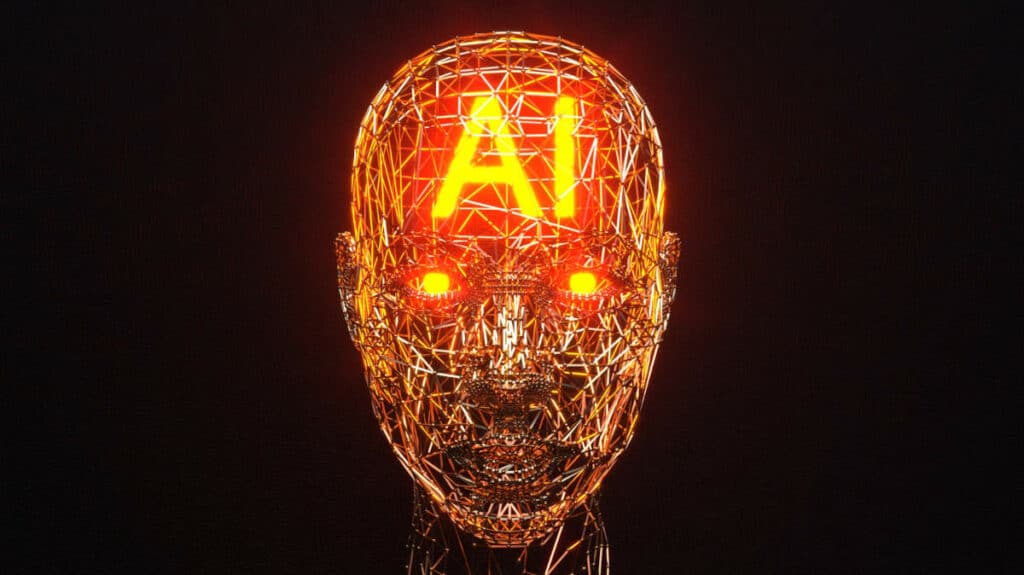An expert system is a computer program that leverages AI to emulate the judgment or behavior of a human expert within a specific domain. Discover everything you need to know about its functionality, use cases, and how you can master it!
Artificial Intelligence (AI) is currently undergoing an unprecedented surge, highlighted by the rise of generative AI and Large Language Models (LLMs) like GPT and Google Gemini. Yet, this innovative technology is not a recent development.
As early as the 1970s, the initial concrete achievements were realized. It was during this period that computer scientist Edward Feigenbaum from Stanford University developed programs capable of solving complex issues by mimicking the reasoning of human experts in particular fields: expert systems.
While their knowledge is confined to narrow domains, these systems offer the capability to harness and share the unique expertise of specialists.
To this day, they are employed across numerous sectors such as medicine, finance, industry, or fault diagnosis. But how can mere software perform such feats?
How Does an Expert System Work?

An expert system’s overall architecture comprises three core components: the knowledge base, the inference engine, and the user interface.
The knowledge base first and foremost houses the complete domain knowledge, structured so the system can effectively utilize it.
Key representation techniques include production rules, objects, frames, and semantic networks.
For instance, within a medical system, symptoms, diseases, and their interrelations can be depicted through rules such as “If fever AND persistent cough Then influenza”.
At the heart of the system, the inference engine employs algorithms to infer new knowledge from the data stored in the knowledge base.
There are primarily two types of inference engines: forward chaining engines (from cause to effect) and backward chaining engines (from effect to cause), with mixed methods integrating both approaches.
Hence, much like humans, expert systems can enhance their efficacy by accumulating experience over time.
The user interface, for its part, facilitates interaction between the human expert and the system. It proves instrumental not only for knowledge acquisition but also for the system’s operation or explaining its logic.
What Are They Used For? What Are the Applications?
The application of expert systems extends well beyond mere data processing tools. Their capacity to replicate and employ human expertise makes them invaluable across a wide range of applications and sectors.
In healthcare, they assist in diagnosing and treating illnesses. They scrutinize patients’ reported symptoms, cross-referencing this information with an exhaustive medical knowledge base to offer recommendations to health practitioners.
They also aid in developing tailored treatment plans adapted to each patient’s unique characteristics.
In engineering, expert systems offer support in designing, maintaining, and troubleshooting intricate systems.
Incorporating electrical grids, industrial control setups, and key infrastructures, their prowess in identifying future issues, suggesting solutions, and proactively fine-tuning processes renders them indispensable tools.
In the financial arena, they are harnessed for risk evaluation, portfolio management, fraud detection, and investment decision-making.
Their capacity to process vast volumes of financial data in real-time and generate recommendations based on pre-established models and rules solidifies their essential role within financial institutions.

Industry also benefits from their application in quality assurance, predictive maintenance, supply chain management, and process optimization in manufacturing.
By enabling the rapid identification of potential issues, fault diagnosis, and solution proposal, they help enhance operational effectiveness and curtail expenses.
In diverse contexts, expert systems act as decision-support tools—whether in human resource management, logistics, or strategic planning.
They empower decision-makers to rely on intricate data analyses, trend identification, or action recommendations for informed decision-making and future challenge anticipation.
What Are the Most Renowned Expert Systems?
There are several well-known and frequently utilized expert systems. The CaDet (Cancer Decision Support Tool), for instance, excels in early-stage cancer detection.
Similarly, PXDES assesses the type and severity of a patient’s lung cancer. Medical professionals can also utilize DXplain for diagnosing a diverse array of diseases.
Moreover, MYCIN is designed to identify bacterial infections such as bacteremia and meningitis, whereas DENDRAL aids chemists in determining the structure of unknown organic molecules.
In the manufacturing realm, the expert system R1/XCON automates the selection and ordering of computer components based on specific customer requirements.
Many Advantages, but Also Limitations
The primary benefit of expert systems is their ability to broadly disseminate expertise, offer cost savings over hiring human specialists, and support decision-making in critical areas.
Without displacing human experts, they complement them by offering rule and fact-based decisions devoid of emotional bias.
Moreover, unlike personnel who may resign, expert systems perpetually retain their amassed knowledge and data.
Yet, these systems also exhibit substantial limitations. Their expertise is confined to specifically defined areas, rendering them ineffective outside their set boundaries.
Their linear thought processing and problem-solving limitations, along with a lack of human intuition and emotional understanding, can also be detriments, notably in sensitive contexts like conveying medical diagnoses.
Maintenance presents another significant hurdle. As knowledge evolves, the system’s database requires frequent updates—a both time-consuming and expensive necessity.
Moreover, representing complex forms of knowledge formally within these systems poses its own set of challenges, such as analogy-based reasoning.

Modern Expert Systems and AI
Initially, the earliest expert systems heavily relied on predefined rule sets by human experts. This is no longer solely the case.
Recent advancements in AI, particularly within machine learning, have paved the way for innovative methodologies. Contemporary “hybrid” expert systems meld traditional knowledge representation methods with machine learning algorithms, which automatically distill models and rules from extensive data sets.
The advent of Big Data and high-capacity processing technologies like Cloud Computing have hence unveiled new horizons for expert systems, enabling them to leverage huge quantities of factual data.
Nevertheless, despite these significant strides, today’s expert systems remain specialized within narrow AI or weak AI frameworks, dedicated to specific tasks.
Substantial hurdles remain before achieving a general AI, capable of human-like reasoning across diverse problems…
How to develop an Expert System?
Developing an expert system initiates with the acquisition of expert human knowledge within the domain.
This foundational phase employs various techniques like interviews, analysis of existing documents, and observation of experts tackling problem-solving scenarios.
Following collection, the knowledge must be modeled and encapsulated in a system-digestible formalism (such as rules, objects, frames…).
This often involves simplifying and structuring the occasionally vague or incomplete expertise of specialists.
Prior to deployment, the system undergoes a validation phase and rigorous testing, ensuring its knowledge base is authentic, presenting it with real scenarios to evaluate its logical deductions for potential errors or inconsistencies.

Conclusion: Expert Systems, a Crucial Step Toward General AI or AGI
As true pioneers of contemporary artificial intelligence, expert systems continue to play a pivotal role despite their boundaries. This is especially due to their integration of the most recent advancements in machine learning and Big Data.
They signify an essential step in the progression towards more effective, self-sufficient, and human-like intelligent systems…
To fully grasp the scope of expert systems and other AI types, consider DataScientest. Our curriculum will equip you with all the necessary skills to thrive in the AI sector.
You’ll delve into Python programming, Data Science tools and techniques, Machine Learning and Deep Learning, cloud computing platforms, and Prompt Engineering among others.
All our certification courses are available remotely in BootCamp, continuous, or alternating formats. Explore DataScientest!
Now that you’re versed in expert systems, delve deeper into related subjects with our comprehensive guides on Deep Learning and Neural Networks.










